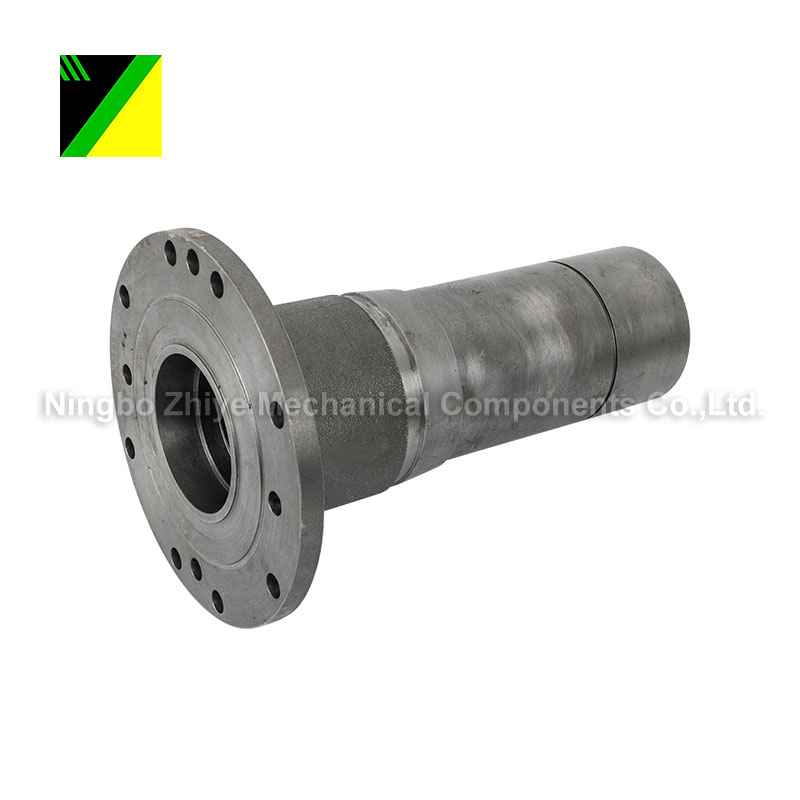
- English
- Español
- Português
- русский
- Français
- 日本語
- Deutsch
- tiếng Việt
- Italiano
- Nederlands
- ภาษาไทย
- Polski
- 한국어
- Svenska
- magyar
- Malay
- বাংলা ভাষার
- Dansk
- Suomi
- हिन्दी
- Pilipino
- Türkçe
- Gaeilge
- العربية
- Indonesia
- Norsk
- تمل
- český
- ελληνικά
- український
- Javanese
- فارسی
- தமிழ்
- తెలుగు
- नेपाली
- Burmese
- български
- ລາວ
- Latine
- Қазақша
- Euskal
- Azərbaycan
- Slovenský jazyk
- Македонски
- Lietuvos
- Eesti Keel
- Română
- Slovenski
- मराठी
- Srpski језик
Why Is Lost Foam Casting the Best Choice for Precision Metal Components?
Lost Foam Casting is a modern and highly efficient casting process used for producing precise and complex metal parts. It utilizes a foam pattern coated with refractory material, which is then replaced by molten metal during the pouring process. This method is particularly suitable for high-precision parts required in industries such as automotive, machinery, and energy. At Ningbo Zhiye Mechanical Components Co., Ltd., we specialize in delivering superior-quality Lost Foam Casting solutions tailored to international standards.
What Makes Lost Foam Casting Unique?
Lost Foam Casting eliminates the need for traditional cores and mold parting lines, reducing machining and improving dimensional accuracy. The process is cost-effective for small to medium batch runs and supports a wide range of metal alloys including iron, aluminum, and steel.
Key Features:
-
High precision and smooth surface finish
-
Suitable for complex geometries
-
Lower tooling costs compared to traditional casting
-
Environmentally friendly with minimal waste
What Are the Technical Specifications of Lost Foam Casting?
Below is a detailed look at the typical parameters of Lost Foam Casting components produced by Ningbo Zhiye Mechanical Components Co., Ltd.:
| Parameter | Specification |
|---|---|
| Casting Material | Gray Iron, Ductile Iron, Aluminum, Alloy Steel |
| Maximum Part Size | Up to 1,000 mm |
| Dimensional Accuracy | ISO 8062 CT7 - CT8 |
| Surface Roughness | Ra 3.2 – 6.3 μm |
| Tolerance Range | ±0.2 mm to ±1.0 mm |
| Annual Production Capacity | 6,000 tons |
| Application Industries | Automotive, Machinery, Water Pump, Power Tools |
How Effective Is Lost Foam Casting in Manufacturing?
The efficiency of Lost Foam Casting lies in its ability to integrate multiple manufacturing steps into a single casting process. It enables the production of parts with tight tolerances and reduces the need for secondary processing such as welding or machining. Through this method, Ningbo Zhiye Mechanical Components Co., Ltd. ensures consistency, cost-effectiveness, and enhanced part performance.
Benefits:
-
Reduced production time
-
High repeatability
-
Minimizes assembly processes
-
Suitable for thick and thin sections
Why Is Lost Foam Casting Important for Modern Engineering?
In today's fast-paced engineering market, the demand for lightweight, high-precision, and complex components is greater than ever. Lost Foam Casting offers an innovative solution to meet these demands. The process supports weight optimization by enabling thin-walled structures and complex interior passages, which are essential for improving fuel efficiency and product performance.
FAQ – Lost Foam Casting
1. What is Lost Foam Casting and how does it work?
Lost Foam Casting is a metal casting process where a foam model is used to create the mold cavity. The foam pattern is coated with refractory material, and molten metal is poured into it, vaporizing the foam and taking its shape.
2. What materials can be used in Lost Foam Casting?
Common materials include gray iron, ductile iron, aluminum alloys, and steel. The material selection depends on the application and performance requirements.
3. How accurate is Lost Foam Casting compared to other methods?
Lost Foam Casting offers excellent dimensional accuracy (up to ISO 8062 CT7) and surface finish (Ra between 3.2 – 6.3 μm), often eliminating the need for extensive machining.
4. Does Lost Foam Casting reduce production costs?
Yes. It minimizes tooling costs, reduces the need for core production, and decreases post-processing steps, making it a cost-effective solution especially for medium-volume production.
If you're looking for reliable Lost Foam Casting services with high precision and customized solutions, Ningbo Zhiye Mechanical Components Co., Ltd. is your ideal partner. For inquiries, technical support, or pricing, feel free to contact us anytime.




